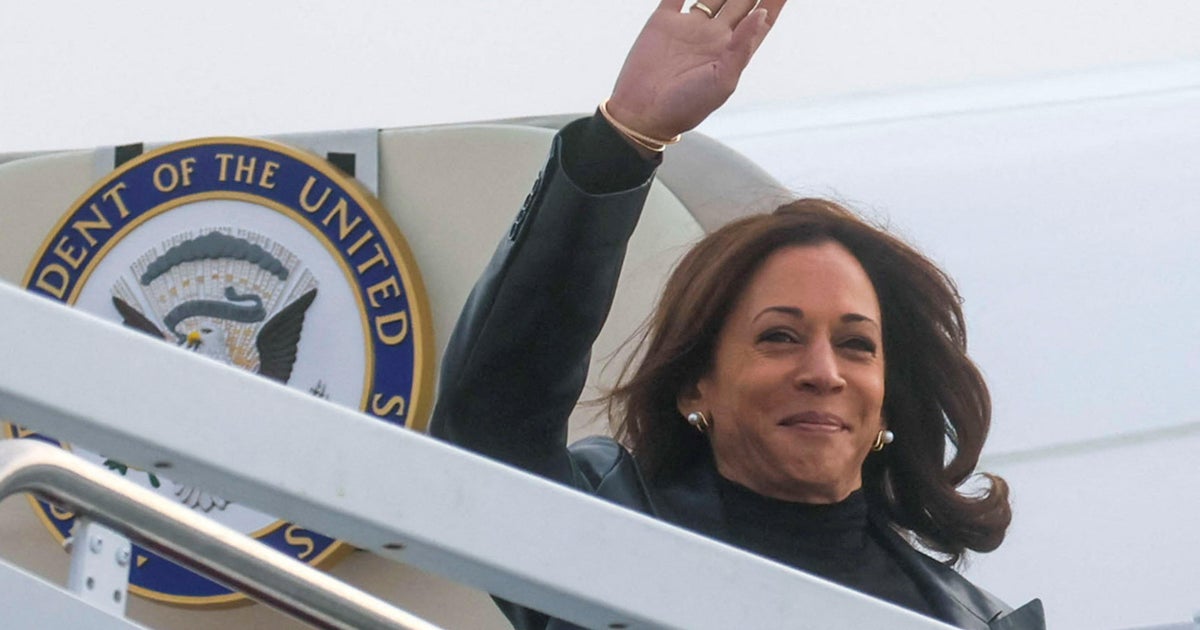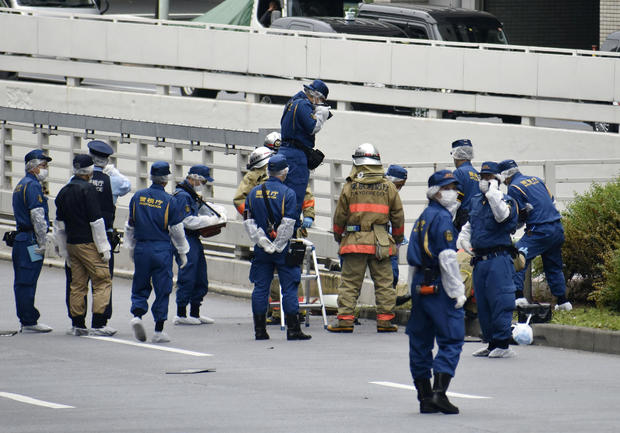Vice President Kamala Harris flew to Japan on Monday for a visit to Asia where she will meet with officials in Tokyo and South Korea this week. First, there was a several-day visit to Tokyo for a memorial ceremony for the former Prime Minister of Japan Shinzo Abe.
Harris will lead the US delegation to a state funeral for Abe, who served as prime minister for nine years from 2006 to 2020. shot and killed during a campaign speech in July. In addition to paying his respects on behalf of President Biden and the broader US public, Harris’ visit aims to “reaffirm the United States’ commitment to our allies in an increasingly complex security environment” and “deepen our shared engagement in the Indo-Pacific region,” – a senior administration official said on Friday news briefing.
The vice president is expected to face controversy during the trip as Abe’s government-sponsored funeral has sparked public backlash and protests. last week, An elderly man reportedly set himself on fire outside the prime minister’s office in Tokyo, in an apparent gesture against the memorial plans, according to officials and media. More demonstrations are expected in the coming days.
LEIA MILIS / REUTERS
US allies seek clarity after mixed reports on whether Mr Biden will send troops to defend Taiwan from a Chinese invasion, a potential conflict that could quickly engulf the rest of the region. There is the potential for further provocations from North Korea, which conducted a missile test shortly before Harris left Washington on Sunday.
Meanwhile, South Korea and Japan are moving toward a reconciliation that will heal some of the wounds left over from World War II, and the U.S. is cautiously trying to push the process along. And there’s resentment over a new US law that makes electric cars made outside North America ineligible for subsidies.
But in Japan, even Abe’s state funeral on Tuesday is itself a sensitive issue, as such memorials are unusual and the late leader’s legacy remains controversial. Abe, a conservative nationalist in a country that embraced pacifism after World War II, was killed with a homemade gun nearly three months ago.
The dispute has politically weakened Japan’s current prime minister, Fumio Kishida, at a time when his government planning to achieve Abe’s goal strengthening the country’s military system.
If Japan goes ahead with its proposed military spending, it will have the world’s third-largest defense budget in the coming years as tensions between China and the US over Taiwan rise. The island is a self-governing democracy, but Beijing considers it part of its territory and has promised to reunite it with the mainland.
KYODO via Reuters
Harris, who will lead a delegation of current and former US officials to the funeral, plans to spend three nights in Tokyo. She was scheduled to meet Kishida, South Korean Prime Minister Han Dak-soo and Australian Prime Minister Anthony Albanese. Harris also plans to meet with Japanese business leaders as the U.S. seeks to expand production of computer chips, and to visit American sailors serving on a U.S. destroyer at a nearby naval base.
This is the vice president second trip to Asia since taking office in January 2021.
During her stop in South Korea, she is set to meet with President Yoon Suk-yeol and host a roundtable of leading women — a sensitive topic in a country where Yoon has faced criticism for a male-dominated administration.
Relations between South Korea and Japan remain tense due to Japan’s aggression during World War II. Koreans are demanding reparations for forced labor and sexual slavery that took place when Japan occupied their country.
Kishida and Yun announced Thursday at the United Nations that they would speed up work to restore relations between the two countries.
Mr Biden has met separately with each leader and the US is keen for both allies to resolve their issues as they seek a united front against China.
Taiwan remains a flashpoint, with tensions rising in recent months.
House Speaker Nancy Pelosi visited Taiwan in August, infuriating Beijing, which responded with military exercises. Although Chinese leaders have said they are seeking a peaceful reunification with Taiwan, the drills are a reminder of the possibility that Beijing could use force.
China also fired missiles into the waters near some of Japan’s southern islands, reminding that any conflict over Taiwan would be a threat to other countries as well.
The US has 55,000 troops based in Japan, more than half on the southern island of Okinawa. Earlier this month, Okinawa re-elected a governor who is demanding a reduction in the US presence there.
Mr. Biden said in a recent interview with “60 Minutes” that the U.S will send its own troops to defend Taiwan when China invaded. But there is no formal defense treaty with Taiwan, and administration officials have repeatedly said Mr. Biden’s comments did not reflect a change in policy, clouding exactly what the United States will do.
CBS News
“It’s mixed,” said Jah Yan Chong, associate professor of political science at the National University of Singapore. “But whether it’s strategically ambiguous, I don’t know.”
More controversy awaits Harris in South Korea, where there is outrage over new US rules that make electric cars made outside North America ineligible for US government subsidies. The policy was included in the Inflation Reduction Act, a landmark piece of legislation that includes nearly $375 billion in climate change initiatives.
Yoon, South Korea’s newly elected president, has spent his first few months in office emphasizing his country’s close ties to the United States, but officials are now expressing a sense of betrayal. They want the rules delayed until 2025, when Korean automaker Hyundai plans to build a new plant in Georgia.
Yun’s government is also considering whether it should file a complaint with the World Trade Organization over the law, which it believes potentially violates trade rules and an agreement between the two countries.
South Korean officials are also seeking to work with European countries such as Germany and Sweden, which they say share similar concerns about their electric vehicle exports to the US, to put more pressure on Washington over the “discriminatory” withdrawal of subsidies.
The controversy is a nasty continuation of Mr. Biden’s controversy a trip to Seoul earlier this year when he flagged plans by automaker Hyundai to invest $10 billion in the US. About half of that money goes to the Georgia plant.
https://www.cbsnews.com/news/shinzo-abe-funeral-kamala-harris-japan/






